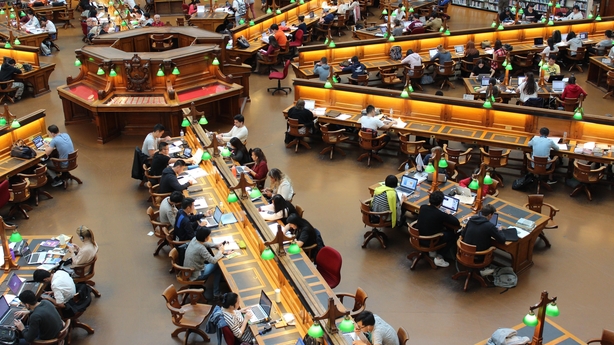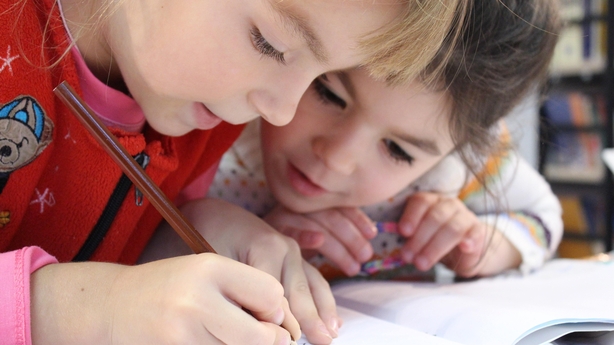Listen to RTE's Future Now, Future Next podcast here now.
We need your consent to load this rte-player contentWe use rte-player to manage extra content that can set cookies on your device and collect data about your activity. Please review their details and accept them to load the content.Manage Preferences
We are currently living through the biggest disruption in education in human history.
According to the United Nations, school closures brought about by Covid-19, have impacted 94 per cent of the world's student population, setting back some 1.6 billion learners globally.
In Ireland, schools and universities adapted to lockdown conditions by moving learning online, relying on technology to connect and continue education.
But is this remote learning model here to stay post-Covid? Has this new reliance on technology changed education for the better or worse? What does the future of education look like for our children and their children?
Dr Anne Looney, Executive Dean of the Institute of Learning DCU, says the unprecedented disruption to education brought about by Covid-19 presents an exciting new opportunity to reshape learning in Ireland.
"We’ve turned a corner and are in a new space now," Anne says.
"We now have a real opportunity now to bring education research and AI research together and there is incredible potential in this."
Anne points to the use of wearable tech in classrooms of the future as an area of innovation.
"What if your Fitbit could tell you how well you were learning, how well you were paying attention and at the end of a session or day in school or university, the device was able to share that information with your parents or family?"

"It might tell you what you learned, how difficult it was for you and what you were challenged by. This not only gives students quick feedback for them but also gives insights to teachers on how students are learning.
"This sort of AI has enormous potential for learning in the future."
Shane Bergin, Physicist and Assistant Professor in Science Education at UCD, says while technology has helped students and educators stay connected during the pandemic, it has limitations.
"Technology tends to assume learning is an individual enterprise. Something that you can do by downloading as opposed to discussing," he says.

"We shouldn't assume that just because we can connect via the internet or phone that that is in any way an authentic replacement for getting together and learning together."
Marianne Checkly is the CEO of Camara Education Ireland, a not-for-profit organisation that helps deliver digital skills to educators and students in disadvantaged communities across Ireland.
Marianne said the past year has been difficult for students, teachers and parents alike, but everyone has risen to the challenge.
"I think everyone has done an amazing job to try and keep young people and students connected to education. Teachers have worked hard to upskill and I think parents have done an incredible job in terms of juggling home circumstances," she says.
"It became clear, very quickly, that to ensure a sense of connectedness and a sense of continued learning for students, everyone had to work together.
"But I think without a doubt, we are going to see over the next one, three, five years the impact of the last year in terms of learning outcomes for children."
To hear more about the Future of Education, listen to the Future Now, Future Next podcast in association with ESB here or wherever you get your podcasts.
ESB is leading the transition towards a cleaner, brighter future. Learn more here.


